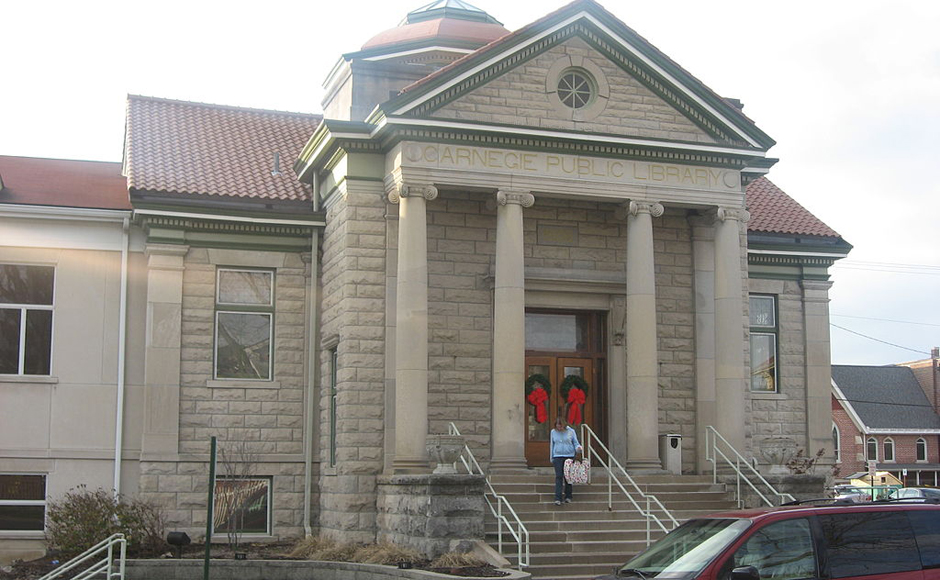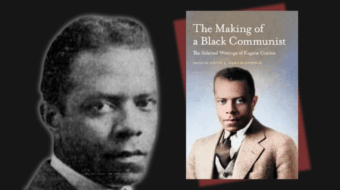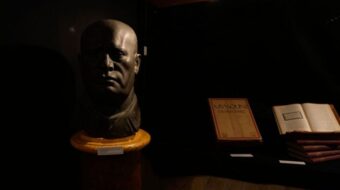
Who was Alice T. Sorenson?
Google turns up a photo of a handsome gravestone with her name and dates (1870-1957) in the Dawson County Cemetery in Glendive, Montana.
Those dates would fit the woman we’re looking for, but how can we know if this is the poet whose single poem, “Carnegie’s Libraries,” was included in An Anthology of Revolutionary Poetry, edited by Marcus Graham, published in 1929?
Thanks to Google we see that this poem was popular in its day, and found its way into print several times. In September 1905 it appeared both in The International Horseshoers’ Monthly Magazine and in The Car Worker. Five years later the Coopers International Journal reprinted it. At one time it appeared in the anarchist journal Freedom, and several stanzas of it were translated into French for Pages libres.
No other writings by Alice T. Sorenson have surfaced, at least not in a preliminary search.
Andrew Carnegie (1835-1919) was one of the wealthiest men of his time, and much has been written about him. He made his fortune with the Carnegie Steel Corporation among many other holdings. He retired in his early 60s and devoted his efforts to philanthropy. The renowned Carnegie Hall in New York City is named for him. All across America, and in several places abroad, he funded libraries for underserved communities. It is those institutions, well known and appreciated by rural Americans who may have retained scant historical memory of Carnegie or the vicious means by which he made his fortune, to which Sorenson draws attention in her poem. For example, the poet references the infamous Homestead strike of 1892.
Carnegie’s Libraries
By Alice T. Sorenson
There is a scent on the books of dead men’s bones,
And a spatter of blood over all;
There’s a rough, ragged hole in each leaf you turn,
Like the wound from a rifleman’s ball.
There’s the last gasp of men shot down at command
Of this gracious and generous man;
There’s the blood and groan, the grief and the sham—
You picture it, any who can.
There’s a picture of Homestead—will we ever forget
How those brave ragged men were defenselessly slain—
Were slaughtered like beasts, like poor hunted beasts,
By Carnegie’s will and for Carnegie’s gain?
Will we ever forget how their mothers and wives
In their rags and their woe knelt down in the dust,
And clasped their dear dead then, just as they fell
By riflemen’s ball and bayonet’s thrust?
Will we ever forget how the press of the land
Made light of the slaughter by saying: The dead
Were foreign-born men, who, in impudence, asked
For the right to living and earning their bread?
Will we ever forget how, in sweatshop and mine,
The fathers and mothers and children are slain?
How virtue is bartered and childhood is crushed
By Carnegie’s will and for Carnegie’s gain?
How the skeleton babes, the milkless breast
Give their poor little lives to his greed?
How the girls on the street and the mothers in rags
Are reflecting his generous deed?
And this is his gift, all shining with blood,
The gift that he proffers with arrogant hand;
This is the penance for murder and lust;
This is his jest to the slaves of the land.
But the books are not dumb; they have eloquent tongues
To tell you their pitiful story—
How the bodies and souls of women and men
Have built him his temple of glory.
How the walls are of bones cemented with blood,
And wet the dropping of tears;
Of hearts that have broken for wrongs unwritten
These hundreds and hundreds of years.
For these wrongs to our comrades we’ll never forget,
Nor this master of bread, with his cunning and greed.
And the gift that he proffers—we spurn it and scorn him,
For we hold it in keeping with his class and deed.










